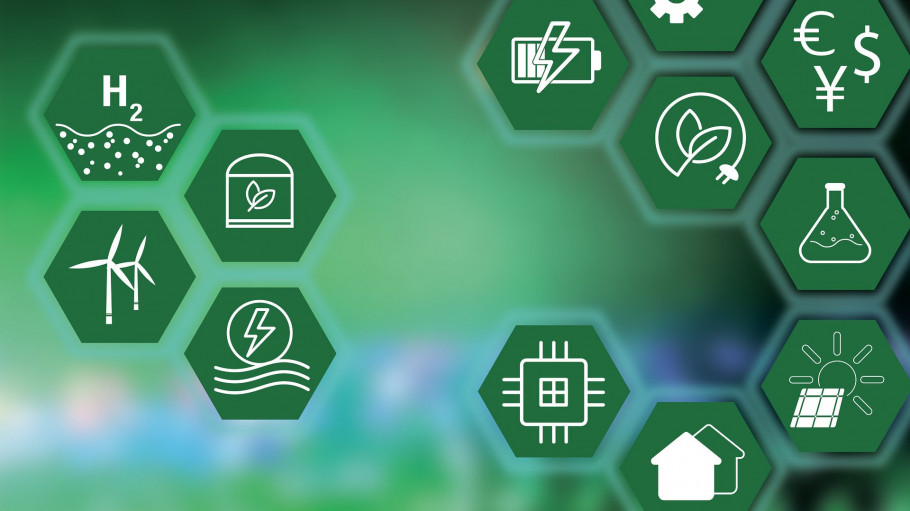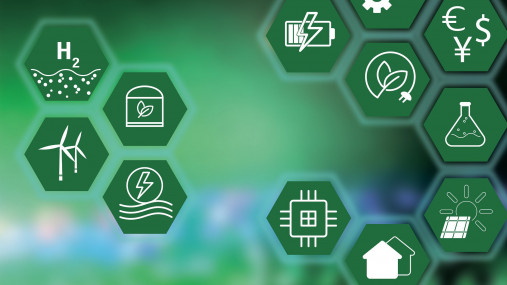
Press releases » RePowerEU: EU policies must secure energy supply and speed up hydrogen infrastructure to support steel industry’s transition, warns EUROFER
RePowerEU: EU policies must secure energy supply and speed up hydrogen infrastructure to support steel industry’s transition, warns EUROFER
Downloads and links
Recent updates

Brussels, 18 May 2022 – Brussels, 18 May 2022 – A revision of the European energy system positioning industrial consumers at its heart is key to overcome both the current energy and climate crises, as EU industry will be the main driver for clean energy markets. In particular, short-term relief measures for companies affected by high energy prices, swift realisation of hydrogen infrastructure and priority access to hydrogen supplies for the sector should be granted immediately, while avoiding disruptions of gas supply as long as alternative infrastructure is not available. These are the main takeaways from the Energy Manifesto of the European steel industry, published on the occasion of the release of the European Commission Communication on RePowerEU.
“Without strategic industrial energy consumers such as steel on board, the energy transition will not be successful. Energy intensive industries need to be integrated across all levels of policy making and political discussions as the key enablers of the decarbonisation and the independence of the European energy system”, said Axel Eggert, Director General of the European Steel Association (EUROFER). “Rapid access of the steel industry to green hydrogen will boost hydrogen markets in Europe. But alternative gas supplies other than from Russia will remain crucial as long as no hydrogen infrastructure at affordable costs is available. We need a revision of the EU energy strategy in the sake of cohesion, cooperation, and cross-sectoral dialogue”, he added.
The combined effects of the energy crisis and the invasion of Ukraine by Russia have added further hurdles on the EU steel industry’s decarbonisation pathway as the EU is not ready to deliver sufficient quantities of low-carbon energy carriers. This highlights the urgency of establishing the right conditions at EU level to support the transition towards climate neutrality.
The new EU energy strategy should pursue short and medium-term measures to cope with the current challenges, by guaranteeing security of gas supplies and swiftly implementing the previous EU toolbox measures to mitigate the impact of price surge on European industry.
At the same time, the revision of the EU energy system must include a long-term strategy ensuring cost-effective consumption and access to energy for industrial sectors as enablers of the energy transition. The European Green Deal and the Fit-for-55 package should be adjusted accordingly. The first strategic objective is to make clean energy available and grant access in large quantities at an affordable price to meet the climate neutrality and sectoral energy targets.
“For the time being, no hydrogen economy or infrastructure exists for the steel sector. Our industry alone will need over 150 TWh of ‘clean’ electricity – half of which for the production of hydrogen - by 2030 to run its 60 low carbon projects across the EU. These needs are the equivalent of two times the electricity consumption of Belgium”, said Mr. Eggert.
In particular, the EU must increase its efforts to achieve strategic autonomy and ensure the economic resilience of key industrial sectors such as steel by enhancing their transition through:
In particular, the EU must increase its efforts to ensure strategic autonomy and economic resilience to key industrial sectors such as steel by enhancing their transition through:
“The European Commission must take a bold approach and develop a coherent framework for supporting energy intensive industries in the transition. Affordable energy is key to achieve the EU climate targets and industry consumers are its key players”, concluded Mr. Eggert.
Contact
Lucia Sali, Spokesperson and Head of Communications, +32 2 738 79 35, (l.sali@eurofer.eu)
About the European Steel Association (EUROFER)
EUROFER AISBL is located in Brussels and was founded in 1976. It represents the entirety of steel production in the European Union. EUROFER members are steel companies and national steel federations throughout the EU. The major steel companies and national steel federation of Turkey and the United Kingdom are associate members.
The European Steel Association is recorded in the EU transparency register: 93038071152-83.
About the European steel industry
The European steel industry is a world leader in innovation and environmental sustainability. It has a turnover of around €125 billion and directly employs around 310,000 highly-skilled people, producing on average 153 million tonnes of steel per year. More than 500 steel production sites across 22 EU Member States provide direct and indirect employment to millions more European citizens. Closely integrated with Europe’s manufacturing and construction industries, steel is the backbone for development, growth and employment in Europe.
Steel is the most versatile industrial material in the world. The thousands of different grades and types of steel developed by the industry make the modern world possible. Steel is 100% recyclable and therefore is a fundamental part of the circular economy. As a basic engineering material, steel is also an essential factor in the development and deployment of innovative, CO2-mitigating technologies, improving resource efficiency and fostering sustainable development in Europe.

Download files or visit links related to this content
Brussels, 22 March 2024 – The future of a strong and resilient EU can only be forged with steel made in Europe. Europe-made low-carbon steel has a strategic role as it enables a net-zero economy, but today it faces strong headwinds from high energy prices, unfair competition, global overcapacity and growing unilateral carbon costs. The year 2023 has recorded the lowest European crude steel production levels ever, with a number of idled plants and dire impact on workers. Ensuring the enabling conditions for the short-term viability and the decarbonisation of the steel sector urgently needs to be at the top of the EU agenda. This is the message delivered by the European Steel Association together with a number of high-level representatives of the sector on the occasion of the Clean Transition Dialogue on Steel in the presence of the Executive Vice Presidents of the European Commission, Maroš Šefčovič and Margrethe Vestager.
Uses, limits, and realistic potentials of demand-side response from the European steel industry along with a broad set of framework recommendations for an EU policy
Antwerp, 20 February 2024 – Today 73 industry leaders spanning almost 20 industrial sectors presented ‘The Antwerp Declaration for a European Industrial Deal’ to Belgian Prime Minister, Alexander De Croo and Commission President, Ursula von der Leyen. The declaration underlines the commitment of industry to Europe and its transformation and outlines urgent industry needs to make Europe competitive, resilient, and sustainable in the face of dire economic conditions.